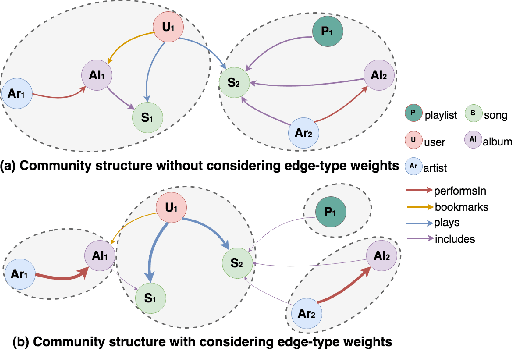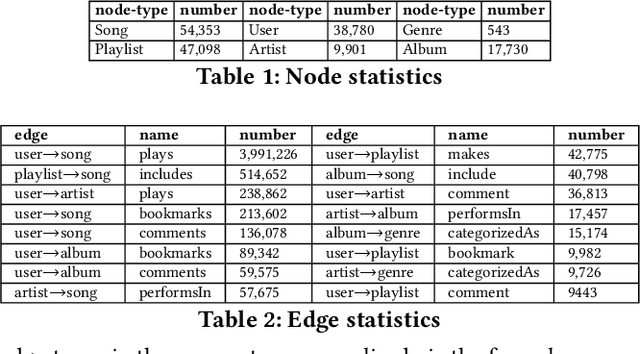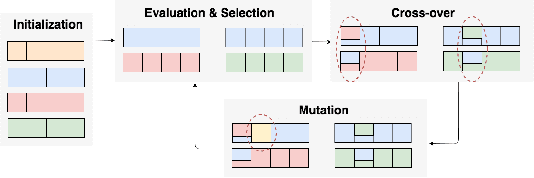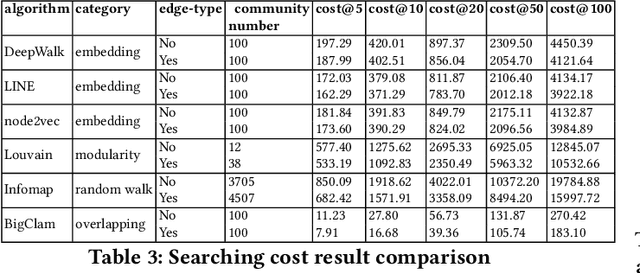Improving Community Detection Performance in Heterogeneous Music Network by Learning Edge-type Usefulness Distribution
Paper and Code
May 03, 2021



Music is becoming an essential part of daily life. There is an urgent need to develop recommendation systems to assist people targeting better songs with fewer efforts. As the interactions between users and songs naturally construct a complex network, community detection approaches can be applied to reveal users' potential interests on songs by grouping relevant users \& songs to the same community. However, as the types of interaction are diverse, it challenges conventional community detection methods which are designed originally for homogeneous networks. Although there are existing works focusing on heterogeneous community detection, they are mostly task-driven approaches and not feasible for music retrieval and recommendation directly. In this paper, we propose a genetic based approach to learn an edge-type usefulness distribution (ETUD) for all edge-types in heterogeneous music networks. ETUD can be regarded as a linear function to project all edges to the same latent space and make them comparable. Therefore a heterogeneous network can be converted to a homogeneous one where those conventional methods are eligible to use. We validate the proposed model on a heterogeneous music network constructed from an online music streaming service. Results show that for conventional methods, ETUD can help to detect communities significantly improving music recommendation accuracy while reducing user searching cost simultaneously.
 Add to Chrome
Add to Chrome Add to Firefox
Add to Firefox Add to Edge
Add to Edge